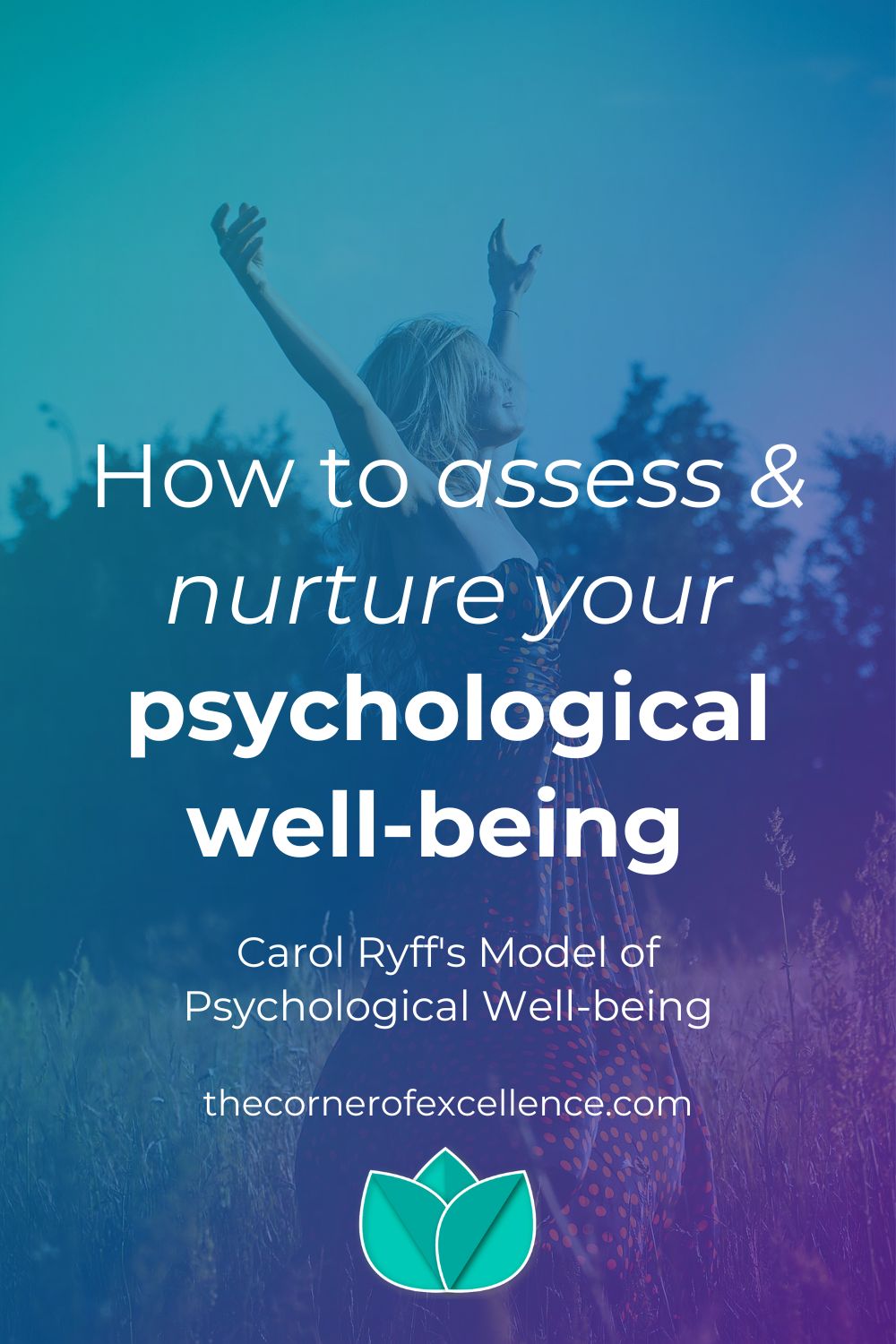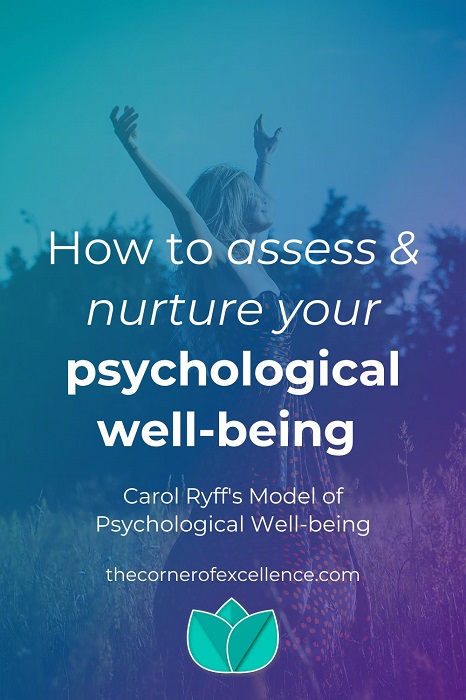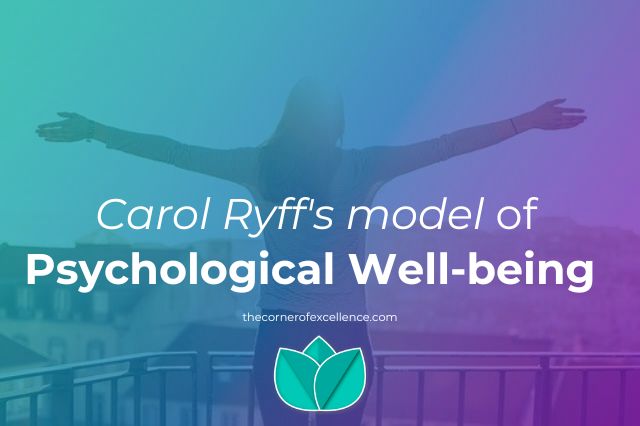
Psychological well-being is built from a series of personal and social factors or dimensions. How well we are doing in each of the aspects is an indicator of our psychological well-being. Let us see who Carol Ryff is and what the model she developed consists of.
Who is Carol Ryff
Carol Ryff is a psychologist and professor of psychology at the University of Wisconsin-Madison. She is known for her studies on psychological well-being and psychological resilience. As well, she created one of the first systematic models on psychological well-being and designed a questionnaire to assess each of the dimensions. This model is considered the forerunner of positive psychology and is still considered very valid.
What is Carol Ryff’s model of psychological well-being?
The dimensions of Carol Ryff’s model of psychological well-being are related to greater subjective well-being as well as life satisfaction. It also affects physical health in terms of lower levels of cortisol, the stress hormone, a better sleep pattern or lower cardiovascular risks, for example.
She defines psychological well-being from optimal human functioning that produces more positive emotions and satisfaction. Each dimension of the psychological well-being model is an index of well-being in itself. For this reason, Carol Ryff points out the importance of taking care of each dimension.
The 6 dimensions of Carol Ryff’s model of psychological well-being
According to Carol Ryff, well-being is not only happiness or positive emotions. Psychological well-being is multidimensional. Let us see which are these dimensions that Carol Ryff developed in her model.
1. Self acceptance
Our level of self-acceptance greatly influences the level of satisfaction with our life. Accepting yourself means recognising and accepting all your facets, your personality, your strengths and weaknesses. It also means having a positive attitude towards yourself. Furthermore, it means being at peace and comfortable with your past.
Lack of self-acceptance denotes dissatisfaction with yourself, with your past, or with certain aspects of yourself. Maybe you want to be different.
2. Environmental mastery
This dimension is related to managing the opportunities and demands of the environment to satisfy your capacities and needs. It means feeling capable of managing and dealing with your environment and the situations that arise. Mastering your environment also means knowing how to choose and take advantage of the opportunities that come up. Even creating opportunities suitable for your needs and aligned with your values.
Lack of mastery of the environment causes a feeling of helplessness. You do not feel capable of dealing with everyday matters and facing situations that arise. Even less do you feel that you can change or improve situations in your favor. Also, you miss out on opportunities because you do not feel capable of facing them or are not aware of them.
3. Autonomy
Autonomy means maintaining your personal independence and your convictions. It means feeling that you can choose for yourself and make your own decisions even if it goes against the opinions of others. Therefore, it means you know how to resist social pressure. People with high autonomy know how to regulate their behaviour, and assess themselves against personal standards instead of the expectations of others.
People with a low level of autonomy succumb to social pressure. They settle for what others tell them to do. They are influenced and guided by the criteria of others. Also, they worry about the expectations and evaluations of others. When making decisions they trust the judgments of others.
4. Personal growth
Personal growth means continually growing and developing yourself. It is the search for learning, new experiences and reaching your potential. So, it means to improve your self-knowledge, your weaknesses, behaviours, develop your emotional intelligence and productivity, for example.
Lack of personal development or insufficient personal growth produces a feeling of boredom, disinterest and stagnation. Perhaps you feel unable to develop productive behaviors or attitudes to cope with life’s challenges.
5. Positive social relations
The fifth dimension refers to how we relate to others. It is about the importance of creating satisfactory relationships, of quality, trust and closeness. You are able to feel affection and intimacy. You also have empathy and you care about the welfare of others. As well, you understand that good interpersonal relationships require giving and receiving.
People who score low on this dimension have few close and trusting relationships. They find it difficult to show affection, be open, and care about others. Therefore, they have a hard time creating strong emotional ties and they are not willing to compromise. This leads to frustration, social isolation, and a lack of support.
I should note here that social isolation and lack of social support have been scientifically proven to increase the likelihood of illness and even reduce life expectancy.
6. Life purpose
The last dimension of Carol Ryff’s model of psychological well-being is life purpose. This means feeling that your life has a meaning both in the past, present, and future. You have beliefs that give your life meaning. As well, you have dreams and goals that you pursue. You also feel like you know where you want to go.
Purposeless people feel that their life is meaningless. They see no purpose in their past, present, or future. Most probably, they lack dreams and goals to achieve.
Positive and negative emotions
Carol Ryff also points out that how we relate to negative emotions greatly affects our psychological well-being. According to her, in the Western world we are expected to feel and express more positive emotions, and free ourselves from negative emotions.
However, there are other cultures, such as Japan, where both negative and positive emotions are seen as interwoven. Therefore, accepting that negative emotions are also necessary and are important indicators of how we feel, improves our health and psychological well-being.
How is your psychological well-being?
Once you know Carol Ryff’s model of psychological well-being, how would you say you are? How good or bad do you think you score in each of the dimensions? If you want to have a look at the type of statements Carol Ryff’s model assesses, you may find them here. In which dimension do you think you have more room for improvement?

Sharing is caring!






One Response
Brilliant write up on Ryff’s model of Psychological Well-being. Thank you so much.